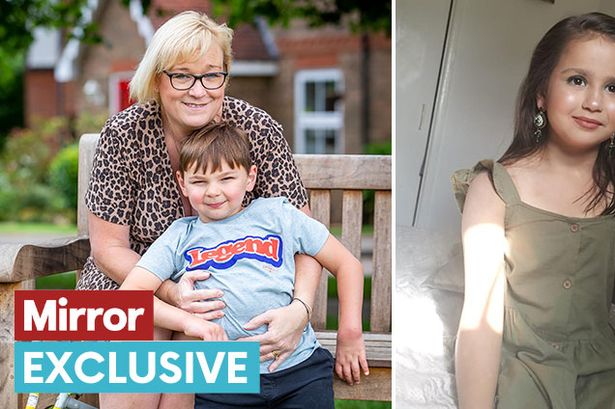Paula Hudgell, whose adopted son Tony Hudgell suffered horrific abuse leading to the introduction of Tony’s Law, commended the judge’s utilization of the newly enhanced sentencing guidelines in the tragic case of Sara Sharif. Sara’s case, marked by unexplained injuries and a subsequent flight of her father, stepmother, and uncle from the UK, highlighted the urgent need for robust legal protections for children. Before Tony’s Law, the maximum sentence for causing or allowing the death of a child was 14 years, a penalty often deemed insufficient given the gravity of the crime. Tony’s Law, officially the Domestic Abuse Act 2021, amended this, allowing judges to impose life sentences for child homicide where the offense involves particularly grave circumstances, and up to 10 years for allowing the death of a child. This decisive move towards tougher sentencing acknowledges the devastating impact of child cruelty and aims to deter future perpetrators. Mrs. Hudgell’s praise signifies a landmark moment in the fight for child protection, emphasizing the law’s potential to deliver justice where it was previously lacking.
Tony Hudgell’s story, the driving force behind this legal reform, is a harrowing testament to the enduring resilience of the human spirit. Subjected to brutal abuse by his birth parents at just a few weeks old, Tony suffered multiple fractures, dislocations, and organ damage. This horrific maltreatment left him with life-altering injuries, necessitating the amputation of both his legs. The initial sentences handed to Tony’s birth parents, though seemingly substantial at the time, were widely criticized as inadequate, fueling public outrage and igniting a campaign for harsher punishments for child cruelty offenses. This groundswell of public support, spearheaded by Paula Hudgell’s unwavering determination to secure justice for her son, culminated in the introduction of Tony’s Law. The revised legislation represents a significant victory, not only for Tony but for all children vulnerable to abuse, ensuring that perpetrators face the full force of the law.
The implementation of Tony’s Law in Sara Sharif’s case, though it cannot undo the tragic loss of a young life, marks a critical step towards ensuring greater accountability for those who harm children. While the details surrounding Sara’s death remain under investigation, the potential for a life sentence for those found responsible underscores the seriousness with which such crimes are now viewed. The judge’s willingness to consider the full range of sentencing options available under Tony’s Law sends a clear message that the justice system is committed to protecting the most vulnerable members of society. This commitment offers a glimmer of hope in the face of tragedy, signifying a shift towards a more robust and effective approach to tackling child cruelty.
The case of Sara Sharif, while deeply distressing, serves as a stark reminder of the ongoing need for vigilance and proactive intervention in cases of suspected child abuse. While the full circumstances surrounding her death are yet to be fully understood, the case highlights the importance of early intervention and the need for effective safeguarding measures. The flight of Sara’s family members from the UK after her death further underscores the complexities involved in such cases, raising questions about international cooperation and the challenges of securing justice across borders. This case serves as a call to action, urging greater awareness and a strengthened resolve to protect children from harm.
Paula Hudgell’s tireless campaigning for tougher sentencing reflects a wider societal shift towards recognizing and addressing the devastating consequences of child abuse. Tony’s Law, borne from unimaginable suffering, represents a collective determination to hold perpetrators accountable and prevent future tragedies. The law’s application in Sara Sharif’s case signifies a crucial step forward, demonstrating the tangible impact of advocacy and the power of legislative reform. This case serves as a poignant reminder of the importance of continued vigilance and the ongoing need for stronger protections for children.
The legacy of Tony Hudgell, embodied in the law that bears his name, serves as a powerful symbol of hope and resilience in the face of adversity. While his own story is one of immense pain and suffering, it has catalyzed meaningful change within the legal system, offering greater protection for vulnerable children. The application of Tony’s Law in Sara Sharif’s case, while tragic in its context, demonstrates the law’s potential to deliver justice and deter future acts of cruelty. This case underscores the importance of continued advocacy, public awareness, and a collective commitment to safeguarding the well-being of all children. Tony’s Law stands as a testament to the transformative power of resilience and the enduring pursuit of justice, offering a beacon of hope in the fight against child abuse.














